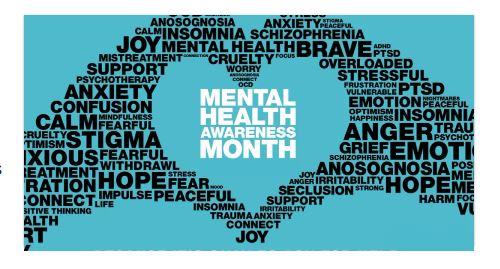In today's fast-paced world, prioritizing mental well-being has become more crucial than ever. Mental health awareness is no longer a niche topic, it's a conversation that permeates workplaces, schools, and social circles. Yet, the stigma surrounding mental health conditions remains a significant barrier to seeking help.
This comprehensive guide aims to empower you with knowledge and resources. Whether you're personally struggling with mental health challenges or simply want to be a supportive friend or family member, understanding the landscape of mental health is crucial.
Clarifying Mental Health:
Mental health refers to our emotional, psychological, and social well-being. It affects how we think, feel, and act, impacting our daily lives, relationships, and ability to cope with stress. Just as physical health, mental health exists on a spectrum. Everyone experiences emotional ups and downs, but when these challenges become persistent and interfere with daily functioning, they might indicate a mental health condition.
Common Mental Health Conditions:
- Anxiety Disorders: Characterized by excessive worry, fear, and physical symptoms like rapid heartbeat and shortness of breath.
- Depression: Persistent feelings of sadness, loss of interest, and changes in sleep or appetite.
- Post-traumatic Stress Disorder (PTSD): Develops after experiencing or witnessing a traumatic event. Symptoms can include flashbacks, nightmares, and avoidance.
- Obsessive-Compulsive Disorder (OCD): Intrusive thoughts (obsessions) and repetitive behaviors (compulsions) that are difficult to control.
- Eating Disorders: Unhealthy eating habits and distorted body image that negatively impact physical and mental health.
Beyond Labels: Recognizing the Signs:
Mental health conditions can manifest differently in various individuals. Here are some common signs to watch for:
- Changes in mood or behavior: Persistent sadness, irritability, or social withdrawal.
- Difficulties with sleep or appetite: Insomnia, excessive sleepiness, changes in eating habits.
- Trouble concentrating or making decisions: Feeling overwhelmed, forgetful, or indecisive.
- Physical symptoms: Headaches, fatigue, body aches, unexplained pain.
- Loss of interest in activities you once enjoyed.
- Thoughts of self-harm or suicide.
Importance of Early Intervention:
Seeking help early on is crucial for effective treatment and management of mental health conditions. Here's why early intervention matters:
- Reduced Symptoms: Prompt treatment helps alleviate symptoms and improve overall well-being.
- Improved Functioning: Increased ability to manage daily activities and relationships.
- Prevention of Complications: Untreated mental health conditions can lead to substance abuse, physical health problems, and even suicide.
External Links:
- National Alliance on Mental Illness (NAMI): https://www.nami.org/
- Anxiety and Depression Association of America (ADAA): https://adaa.org/
- The Jed Foundation: https://jedfoundation.org/
- Crisis Text Line: Text HOME to 741741 (US)
Shattering the Stigma: It's okay to not be okay
Many people hesitate to seek help due to the stigma surrounding mental health. It's important to remember:
- Mental health is just as important as physical health.
- Mental health conditions are treatable.
- You are not alone.
Building Resilience: Self-Care Strategies
- Prioritize sleep: Aim for 7-8 hours of quality sleep each night.
- Practice mindfulness: Meditation and breathing exercises can help manage stress and improve focus.
- Engage in regular physical activity: Exercise releases
Last of all, Mental health awareness is a continuous journey. By educating yourself, challenging stigmas, and prioritizing self-care, you can create a positive impact on both your well-being and the well-being of those around you.
Remember, you are not alone. There are numerous resources available to support your journey towards mental wellness.
Don't hesitate to reach out to a trusted friend, family member, therapist, or mental health professional if you're struggling. Seeking help is a sign of strength, not weakness.
Together, let's break down the barriers surrounding mental health and create a world where everyone feels empowered to prioritize their emotional well-being.



